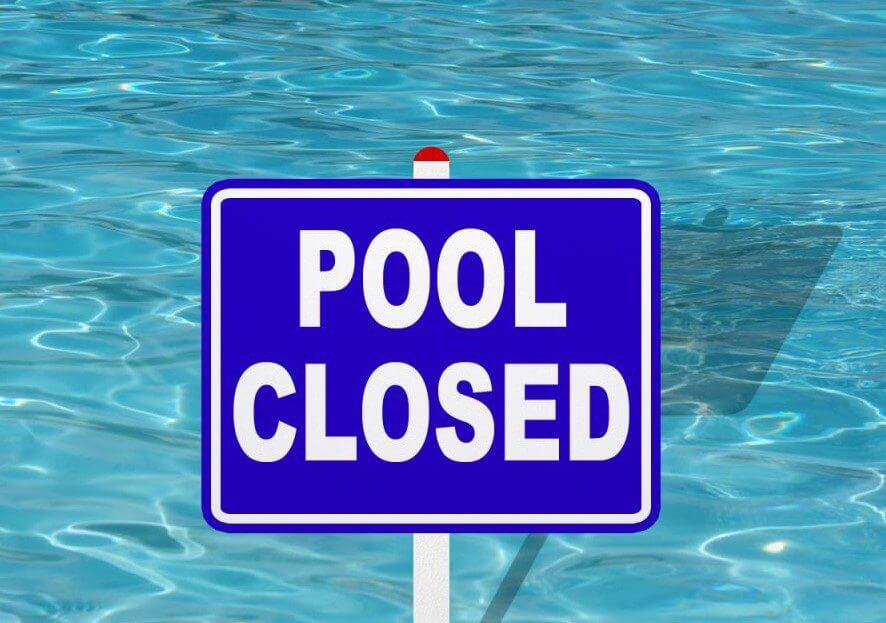A Swimmer’s Immune System: Why Sickness Routinely has Bad Timing

A Swimmer’s Immune System: Why Sickness Routinely has Bad Timing
By Vanessa Steigauf, Swimming World College Intern
Illnesses usually come when we don’t need them at all. For swimmers that means: During a training trip or right before an important meet. But why do infections and other sicknesses always have such bad timing? If you think about it, there is no such thing as good timing to be sick. With a full-blown illness, it’s not like with a muscular injury. You can’t just kick for a few sessions or compensate missing time in the pool with cross training. With something like an upper respiratory illness, you are out of training for at least a couple of days. And we all know that this can mean a huge setback performance-wise.
Sickness During a Swimmer’s Season
Why are swimmers so prone to getting sick at exactly those times during the season when being in the pool is crucial for later performance? One of these times is right at the beginning of the season. We all get back to practice with a great load of motivation and school starts again. As things just start to get rolling – swimmers get sick. There are many different factors that contribute to this bad timing of illness. One is, that with school, work and practice starting at the same time, we experience a greater amount of stress than during the relaxing past weeks where all there was to worry about is how to get the most out of summer vacation. The higher stress level makes us more prone to infections. Being in crowded classrooms that are like petri dishes for germs doesn’t help with staying healthy either.
But even in the middle of the season, swimmers often get sick. This time is usually during training trips or high-intensity training periods. Why does that weaken a swimmer’s immune system so much that we get sick so easily? There were several studies done that looked at training intensity and upper respiratory illness of swimmers during a whole season. They found that our immunity actually decreases as we enter higher loads of training and 67% of the upper respiratory symptoms that appear throughout a season accumulate throughout such intense training periods. The researchers also found a reason why the immune system is weakened in these phases. As training load increases, blood levels of cortisol increase and natural killer cell levels decrease. While cortisol is a hormone that is usually excreted in response to stress, natural killer cells are a major contributor to our immune system’s functioning.
The Key Elements of a Swimmer’s Immune System
The combination of these fluctuating blood levels of important contributors to our immunity causes a decrease in our immune system’s effectiveness. This means that our immune system isn’t as successful at fighting off infections as it is for non-athletes. High-intensity training therefore correlates with a decreased immunity. While our goal definitely is to stay healthy throughout the season and to miss as little practice as possible, how can we make sure we support our immune system without extensively decreasing training load?
Training Within your Adaptive Reserves
It almost seems impossible to get the most out of our training: either we practice hard but then get sick and experience a setback, or we practice lighter and don’t make the progress we wish for either. The solution to this issue is to train within our adaptive reserves. This basically means that we should never increase the training load faster than our body can adapt to it.
Talking to your coach to optimize your training load can be helpful to make sure you don’t overload your body’s capacities to recover. This strategy can help to not deplete natural killer cells at a fast rate. This will keep your immune system working closer to off-season levels even during high-intensity training periods. Other factors that can help to make sure you recover properly are healthy nutrition, clothing that is adjusted to your current weather situation (like wearing a hat when it’s cold), and good and sufficient sleep.
… If You Still get Sick
Of course, our immune systems aren’t perfect. They won’t be able to fight off all the infections that will come along. Despite all those little tips and tricks you might still get sick. Make sure to fully recover from your infection before you get back in the pool to avoid a chronic progression of your symptoms. A week without any practice is still better than a whole month of inefficient practice, ongoing symptoms, and a weakened body.
All these details help your body to not waste important bits of energy. You need this energy to recover and keep your immune system working. If you take care of your body, your immune system will keep working at an effective level to fight off the many germs and viruses that you will be exposed to during everyday life. This will enable you to stay in the pool for practice most of the time.
All commentaries are the opinion of the author and do not necessarily reflect the views of Swimming World Magazine nor its staff.




Some words of wisdom – worthy of consideration.